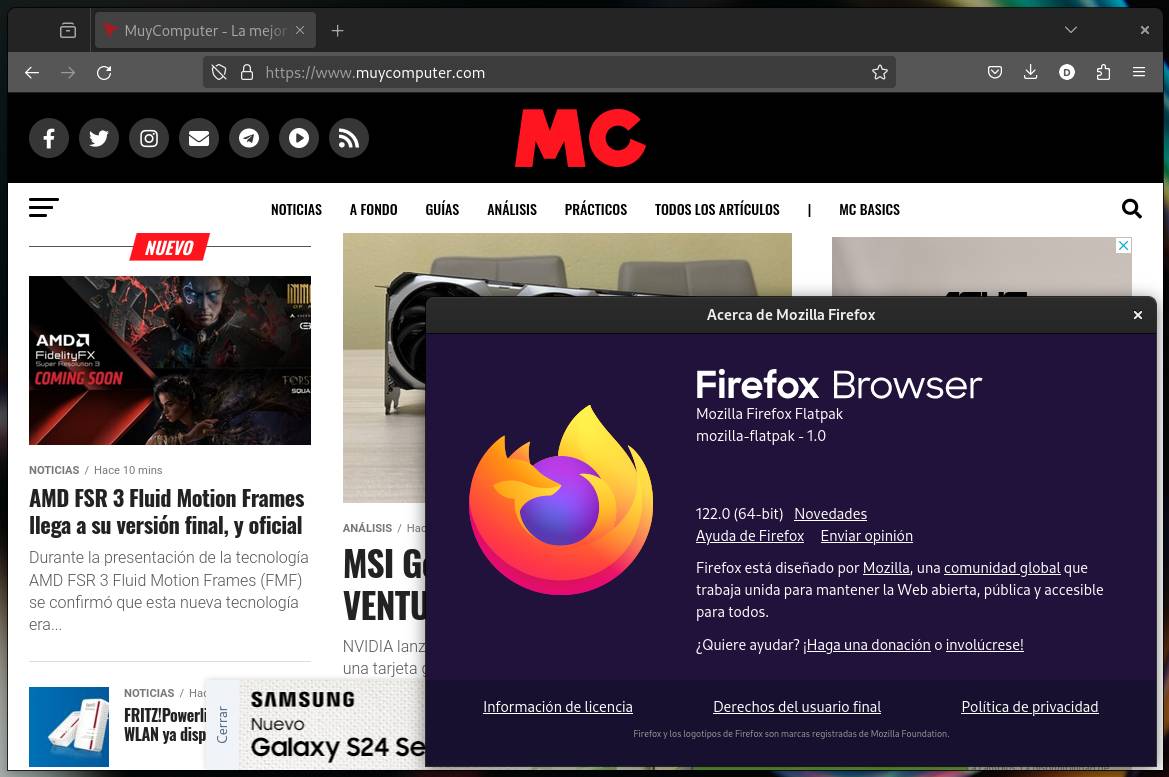Firefox 122 is now available as a new stable version of Mozilla’s web browser, which this time does not come with many important news. In fact, it can be said that users of Debian-based Linux distributions (Debian, Ubuntu, Linux Mint, Zorin…) are the ones who benefited the most from this release, although what they got is something Mozilla should start providing at least ten and a half years ago.
As we said before, users of Debian-based Linux distributions are the main beneficiaries of the Firefox 122 release because Mozilla has made the Deb package and APT repository available which should make it easier to maintain and update the application on these systems.
It’s quite sad to see Mozilla taking so long to provide Deb installers and an APT repository, because until today the official way to get Firefox for Linux was to download tarball which provides a portable browser build. Yes, this compilation generally works, but it’s a very cheesy way to deliver an application, and very early in the century, especially since Google Chrome has been making available Deb and RPM installers for over a decade that can be installed at once. and also configure storage.
In fact, the appearance of the Deb package and the APT repository is a little surprising, seeing that it arrived after Ubuntu started using Firefox wrappers in Snap format, which is official, and Mozilla is also in charge of Flatpak compilation. First the universal package and then the “traditional”.
If we change the focus to a more general level, we find that Firefox 122 is capable show images in search suggestions if the search engine provides themlocal translation features continue to improve with improved stability and greater resilience against potentially broken widgets, MDN Web Docs article suggestions available from the address bar for users looking for web development information, plus line-wrapping rules now conform to the Unicode standard and support various Asian languages have been improved.

The most notable part of Firefox 122 is the web platform. Here and focusing on what is most tangible to the end user is Default use of ULPFEC (Unequal Level Protection Advance Error Correction), which allows you to improve video quality with WebRTC when the Internet connection is poor..
Another interesting thing is that since this release the app has been contaminating the filters it uses currentColor as a record. Because the color can be set using a pseudo selector :visisted, has the potential to contain sensitive information and is therefore a primitive that should be marked as contaminated. With this change, Firefox ensures that the filter result cannot be read from the canvas, improving privacy.
Finally, we can mention the inclusion of support for the Screen Wake Lock API, which “provides a way to prevent the device from dimming or locking the screen when the application needs to continue running”.
Details about Mozilla Firefox 122 are available in the release notes, while the application can be obtained for Windows, macOS and Linux in the corresponding download section. If you have it installed, it can be forced to update via Main Menu > Help > “About Firefox”, although for Linux it’s logical to wait for it to arrive via the distribution’s repositories, Snap and/or Flathub (Flatpak). On Android, it is provided through the Google Play Store.














